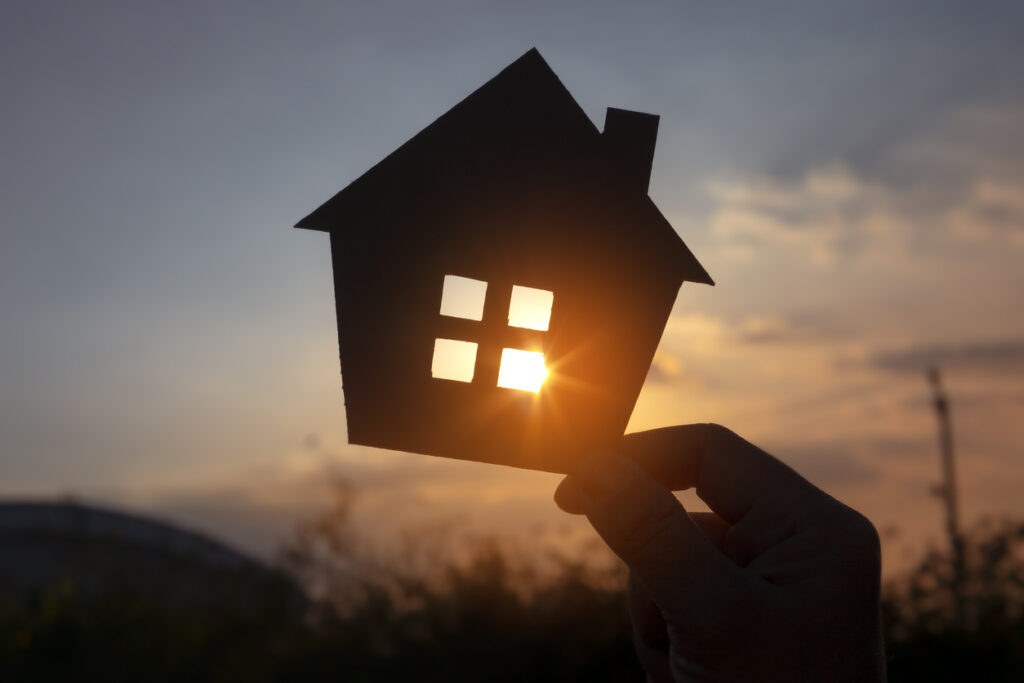The Role of Housing Stability in Health Outcomes
January 21, 2025

A Safe, Stable Home Supports Physical, Mental, and Social Well-Being
While the immediate needs and causes of homelessness often dominate discussions, its profound and long-term effects on physical and mental health are frequently overlooked.
There are strong links between housing stability and positive health outcomes, just as there are clear connections between housing instability and negative health consequences. Stable housing, along with the basic amenities it provides—such as temperature control and running water—forms the foundation for overall well-being, influencing not only living conditions and access to healthcare, but also mental health and social connections.
Given the profound impacts housing stability has on overall well-being, the absence of stable housing can significantly hinder an individual’s physical and mental health in various ways, including the following:
Foundations for Good Health
Stable housing offers a clean, safe environment essential for maintaining physical health. With access to basic amenities like running water, refrigeration, and temperature control (heating, air conditioning, fans), individuals can maintain better hygiene, store food safely, and avoid illnesses that arise from poor sanitation or harsh weather conditions. A stable home also makes it easier to manage chronic health conditions by providing space for storing medications, a clean environment for preventing infections, a comfortable area for rest, and a kitchen to prepare nutritious meals.
Without housing, these basic needs become next to impossible to meet. Lack of access to clean water and sanitation increases the risk of infectious diseases. Prolonged exposure to extreme temperatures can lead to dangerous conditions like hypothermia or heat stroke. Unsanitary living conditions, like encampments or shelters, contribute to chronic respiratory issues and skin infections, and often lack the refrigeration needed to keep temperature-sensitive medications such as insulin safely stored, making the management of conditions like diabetes challenging.
Access to Health Care
A stable address often determines access to health care services, from receiving appointment reminders and prescription information to qualifying for insurance. With the rise of telehealth services, internet access has become even more crucial for maintaining health. Housing stability also plays a key role in recovery after medical treatments or hospitalizations, offering a clean, comfortable space to rest and recuperate.
For those without housing, navigating health care becomes a significant hurdle. Missed appointments and lack of preventive care result in worsening chronic conditions. Emergency rooms become the primary point of care, which is costly and inefficient, and recovery from illnesses or surgeries is compromised without a safe and clean environment.
Mental Health Stability
Housing stability provides safety and fosters a deep sense of security by reducing exposure to the elements, forced displacement, or harm by others. It alleviates stressors that can worsen mental health conditions, enabling individuals to move beyond immediate survival concerns and focus on long-term goals, relationships, and a sense of purpose—all crucial for emotional well-being. A consistent home environment allows individuals to establish routines, connect with support systems, and access mental health services. These factors are particularly vital for individuals coping with substance use, post-traumatic stress, or mental health disorders, as stability, safety, and emotional security are foundational to effective treatment and recovery.
Conversely, housing instability amplifies mental health challenges. The constant stress of survival—finding food, avoiding harm, securing a place to sleep, staying warm in the winter or cool in the summer—can lead to anxiety, depression, and trauma. For individuals with pre-existing mental health conditions or I/DD, the lack of stability exacerbates symptoms and complicates treatment.
Social Connectivity
A stable home is essential for building and maintaining relationships, and for fostering a sense of community. It offers a space to host friends and family, a permanent address for work and communication, and a place to engage in social activities.
Humans are inherently social, and without strong relationships, feelings of loneliness can grow, leading to various health problems. The transient nature of homelessness often isolates individuals, making it difficult to form lasting connections. This isolation can contribute to both mental and physical health challenges, including heart disease, diabetes, depression, anxiety, and even premature death, as the CDC highlights. In contrast, stable housing provides the foundation for meaningful social connections, significantly improving overall well-being.
Building Pathways to Stability and Health
Housing stability is not just a roof over one’s head—it’s a powerful foundation for long-term well-being and health, particularly for individuals with I/DD. Programs like the Mission Supports program at Rocky Mountain Human Services, play a vital role in addressing the unique challenges faced by those with I/DD who are experiencing housing instability. By connecting individuals to the right services and resources, they can pursue a life free from homelessness, unlocking a future where long-term health can be better prioritized.
When asked to describe some of the negative health outcomes that people with I/DD experience when unhoused, the Associate Director of Mission Supports, Arnie Swenson, put it this way: “The lack of housing is stacking trauma on top of already existing trauma.” This highlights the compounded impact of homelessness, which not only affects immediate well-being but also exacerbates mental health issues and chronic conditions. The instability of homelessness makes it incredibly difficult to manage trauma, mental health conditions, and physical health, often leading to further deterioration.
The link between housing stability and health outcomes cannot be overstated. A safe, stable home provides the foundation for meeting basic needs, managing health conditions, and fostering meaningful relationships—all of which are essential for long-term physical and mental health. For individuals with I/DD, stable housing is even more critical, as it supports consistent routines, emotional safety, and access to necessary services. Programs like Mission Supports play a vital role in breaking the cycle of homelessness, offering essential resources and services to those with I/DD who may not otherwise have what they need to live safely or independently.
Stable housing isn’t just a necessity—it’s a cornerstone of well-being for all.
To learn more about the Mission Supports program and how it supports people with I/DD who are experiencing homelessness, click here.







